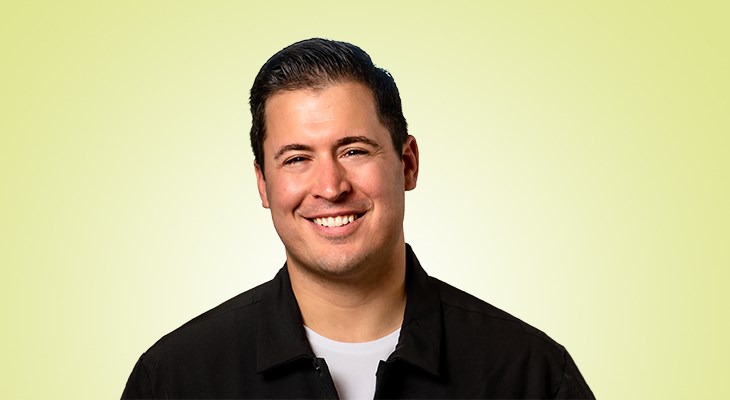Before Michael Sirpilla started Society Brands, he visited a client who was in his mid-30s and owned some 40 nursing homes, which generated hundreds of millions of dollars in revenue. Sirpilla asked him how he accomplished it.
"And he said to me — and it changed the way that I would think about business — is everybody wakes up in the morning swinging a bat. You could wake up and swing a really small bat or you could take the biggest bat you could find and you could try to hit something with it," he says. "What I tried to do is I found the biggest bat I could. I had this opportunity to acquire all these nursing homes. It was for sale for $50 million. So, my first inclination was, how many people are we friends with go out and try to even acquire something that's $50 million. And normally that's not something that a lot of people attempt to do. No. 2, he's like, I just found the biggest bat and I tried to swing it."
Sirpilla says he walked away from the conversation with the idea that he needed to be thinking bigger and become bolder. Chasing that end, he told the audience at the Cleveland Smart Business Dealmakers Conference that the company determined it needed to raise a large amount of capital. The company went through the process of doing a roll-up in the ecommerce space, which he says he looked at in three phases. First, he needed a big enough opportunity.
"If somebody is going to write you a $100 million check or $200 million check — for us, it was a little bit over $200 million dollars — it needs to be a big enough opportunity," he says. "I can't start a lemonade stand today and expect somebody's going to write a $200 million check for it."
Moving on the ecommerce space, he says he and his co-founders, who have ecommerce experience, have collectively have sold over $2 billion in products online. In a highly fragmented market with more than 3 million third-party sellers on Amazon and 4 million selling direct to consumers on Shopify, Society Brands could essentially get to really large numbers over the next five years and own 0.1 percent of the addressable market. There were also myriad acquisition targets — possibly millions — in the space.
The other aspect is the team, which was a critical aspect of raising capital.
"If you're trying to get a capital provider to fund your idea or early-stage business, depending on where you're at, you've got to have a credible team," he says. "So, the first thing I had to do was say, what are the areas that I'm really strong at? But then, where are the areas that I'm weak? And I think where a lot of business owners tend to stay small is they think that they're going to do everything. Yes, I could do accounting, I guess, but that's not my core competency. So, for me to be diligencing deals, that's not necessarily what I do the greatest job at."
The third part, for the company to raise a lot of money at the early stage — Series A or pre-Series A — requires a strong pipeline to acquisitions.
"When you're going to the capital markets and they want their capital to be deployed, they want to know that you have a pipeline already in place," he says. "So, we did things a little bit backwards. Instead of raising money first and finding a pipeline, we went out to the marketplace, started talking to these third-party sellers on Amazon and Shopify, and said, Here's our story. Here's who we are at Society Brands. We would like to present you with a call option agreement where we essentially have an option to purchase your business. And it's optional in nature for us. It is binding for the seller. But here's our story: If we call the call option here, essentially here's what you're going to get for your business if we decide to buy it. And within four and a half months, we've got about $62 million of EBITDA under binding call option agreement. And then we end up hitting the capital markets with a really large pipeline of companies to acquire. We had a strong management team, and we already did a platform acquisition that we did with our own capital with Omni X, and they managed to hundreds of millions of dollars of revenue for their clients. So, the proof was in the pudding to where we had the pipeline in place, we had the team, we had the opportunity, and fortunately, the stars aligned for us."




